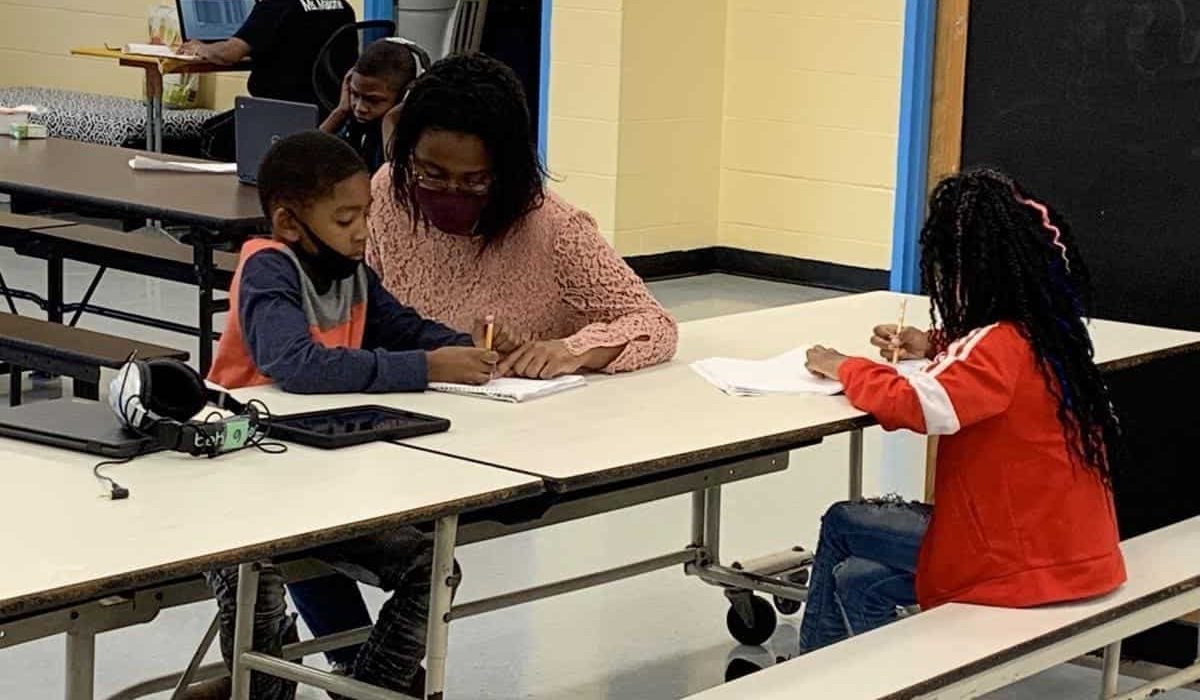The Role of Community Learning Hubs in Bridging Literacy Gaps

In many parts of the world, literacy remains a significant barrier to accessing educational and economic opportunities. Despite advances in education, many individuals, particularly in marginalized communities, continue to struggle with basic reading and writing skills. Community learning hubs have emerged as a transformative solution, offering accessible, community-based education that aims to bridge these literacy gaps. These hubs provide a range of educational services that empower individuals to improve their literacy, acquire new skills, and gain the confidence needed to succeed in today’s world.
What Are Community Learning Hubs?
Community learning hubs are local centers or spaces designed to offer educational support to individuals who may have limited access to traditional educational systems. These hubs are typically run by community organizations, non-profits, or grassroots groups, and they often cater to underserved populations, including adults, children, and elderly individuals. The services provided in these hubs can vary widely, from formal literacy programs to more informal, community-driven learning opportunities.
The primary aim of community learning hubs is to provide equitable access to education and create supportive environments where learners can thrive. These centers offer a wide range of programs that focus on improving literacy, vocational skills, digital literacy, and other essential life skills that may not be covered in traditional classrooms.
The Importance of Bridging Literacy Gaps
Literacy is the foundation of education and is crucial for personal, social, and economic development. Individuals who struggle with literacy often face challenges in securing stable employment, participating in social and civic life, and accessing healthcare or financial services. In some cases, low literacy can perpetuate cycles of poverty, limiting opportunities for future generations.
Addressing literacy gaps, particularly in underserved communities, is essential for ensuring that all individuals have the skills needed to navigate the modern world. Community learning hubs play a pivotal role in breaking down these barriers by offering literacy education that is both accessible and tailored to the needs of learners.
How Community Learning Hubs Help Bridge Literacy Gaps
- Accessible Learning Opportunities
One of the primary advantages of community learning hubs is that they provide education in local, easily accessible locations. This is particularly important in rural or underserved urban areas where traditional schools or libraries may be difficult to reach. By removing geographic and financial barriers, community learning hubs ensure that literacy education is available to a wider population, including those who may not have had the chance to attend school regularly or who may have missed out on formal education for other reasons. - Tailored Programs for Diverse Learners
Community learning hubs are often more flexible than traditional educational institutions. They can offer customized programs that meet the specific needs of different groups of learners, such as adults with limited literacy skills, children who are falling behind in school, or senior citizens looking to improve their reading and writing. By focusing on personalized learning, these hubs create an environment where students can progress at their own pace and feel supported as they improve their skills. - Culturally Relevant Education
Because community learning hubs are often rooted in local communities, they have the unique ability to offer culturally relevant education that resonates with learners. This can include using local languages, traditions, and examples that students can relate to in their everyday lives. This relevance helps learners feel more engaged and motivated, as the learning is directly applicable to their personal experiences and needs. - Building Lifelong Learning Habits
One of the key outcomes of community learning hubs is the promotion of lifelong learning. Literacy is not just about reading and writing—it is about fostering a mindset of continuous learning and development. Community hubs encourage learners to view education as an ongoing journey, supporting them as they acquire new skills throughout their lives. This focus on lifelong learning equips individuals to adapt to a rapidly changing world and opens doors to new opportunities, from better employment prospects to increased community engagement. - Supportive and Safe Learning Environments
For many learners, especially those who have struggled with formal education in the past, community learning hubs provide a supportive and non-judgmental environment. These spaces prioritize creating a sense of belonging, which can be crucial for those who have experienced failure or exclusion in traditional educational settings. Peer support, mentorship, and community involvement help students build confidence and stay motivated on their learning journey. - Community Empowerment
Community learning hubs do not only focus on the individual learner—they also empower communities as a whole. By offering education that is tailored to local needs, these hubs contribute to the overall well-being and development of the community. As individuals improve their literacy and gain new skills, they are better equipped to contribute to the social, economic, and political life of their community. Furthermore, many community learning hubs involve local residents in the development and delivery of programs, fostering a sense of ownership and investment in the learning process. - Digital Literacy and Skills Development
In the modern world, literacy is not limited to reading and writing on paper—it also includes digital literacy, which is essential for accessing information, communication, and opportunities. Many community learning hubs offer digital literacy programs, teaching learners how to use technology effectively. This can include basic computer skills, navigating the internet, and understanding digital security. By improving digital literacy, community learning hubs ensure that their learners are prepared for the challenges and opportunities of the digital age.
Challenges Faced by Community Learning Hubs
Despite their effectiveness, community learning hubs face several challenges. These may include limited funding, reliance on volunteers, and the need for ongoing training and resources for educators. Additionally, while community hubs can be successful in bridging literacy gaps, they often rely on partnerships with schools, government agencies, or non-profit organizations to ensure sustainability and growth.
To overcome these challenges, community learning hubs must build strong networks of support and advocacy. This can include forming partnerships with local businesses, seeking funding from government or philanthropic organizations, and creating programs that demonstrate tangible outcomes in literacy and community development.
Conclusion
Community learning hubs are a powerful tool in the fight to bridge literacy gaps. By providing accessible, culturally relevant, and tailored education, these hubs empower individuals to improve their literacy skills and achieve their full potential. As the world continues to evolve, the role of community learning hubs in fostering lifelong learning and community empowerment will only grow more significant. To truly bridge literacy gaps, it is essential that communities, governments, and organizations continue to invest in these hubs, ensuring that all individuals, regardless of their background, have the opportunity to succeed in the modern world.










